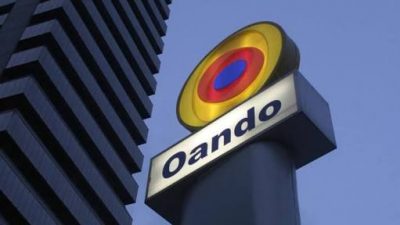NNPC awards Oando, Eterna and Sahara Group, crude export license for two years
Nigerian National Petroleum Corporation NNPC has issued a 2-year crude export license to some local and foreign companies.
According to Reuters, NNPC has awarded 50 companies with crude export contracts. Out of the total 32 were local companies.
In 2017 NNPC released the names of 39 companies that won bids to lift crude oil contracts on behalf of the government. They include 18 Nigerian companies and two owned by NNPC.
Companies listed in the partial 2018 list are Total, Spain’s Cepsa, the trading arm of Azerbaijan’s Socar and Lukoil’s trading subsidiary Litasco, Mocoh and Petraco, Lebanon’s BB Energy and Nigerian firms Sahara Group, Eterna and Oando were also among those on the list.
Recall that in January 2018, the Nigerian National Petroleum Corporation, NNPC, started the process for the selection of off-takers for its various crude oil grades, with 254 companies indicating the willingness to participate in the process.
According to the Group General Manager in charge of the Crude Oil Marketing Division, Mr. Mele Kyari selected companies must present their 2015, 2016 and 2017 audited accounts and as well provide evidence of their tax clearance certificate.
He also said the companies must have a minimum annual turnover of $500 million and a net worth of $250 million for 2016, as well as show ability to establish an Irrevocable Letter of Credit (LC) subject to contract terms.
However, the Nigerian National Petroleum Corporation said it plans to halt in the next few years the practice of awarding crude oil lifting contracts to companies other than its trading arm.
NNPC yearly allocates the majority of its crude cargoes to trading companies and oil refiners that hold yearly term contracts. These cargoes are then sold by the trading companies to end-users, refiners, and other buyers.
But this practice has been criticized by the country’s trading partners. India, the largest buyer of Nigerian oil, has always pushed for the NNPC to directly market its crude to ensure its largest buyers have secure supplies and stop using trading companies and other intermediaries. (Nairametrics)


